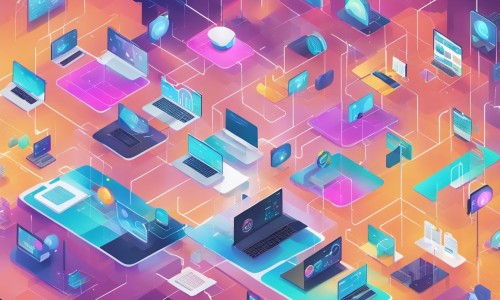Work from Home HR Jobs: Kickstart Your Career with Entry-Level Remote Opportunities

-
System Admin
-
Feb 14, 2024
-
97
The rise of remote work has opened many opportunities for individuals seeking entry-level jobs in human resources. Companies are increasingly acknowledging the benefits of remote positions, leading to a more significant number of work from home HR roles available. This shift means that those entering the HR field now have the flexibility to launch their careers from wherever they are without the need to relocate or commute daily to an office. This trend is particularly advantageous for recent graduates and professionals eager to start their HR journey, providing them both with an entry point into their desired industry and the convenience that remote work affords.

Seeking a job in HR doesn't mean sacrificing work-life balance or navigating the complexities of moving to large corporate hubs. Entry-level remote HR jobs allow individuals to gain valuable experience while maintaining personal freedom not traditionally seen in office-bound jobs. These positions often include roles like HR assistants, coordinators, and recruitment aides, all of which serve as the foundational building blocks of a promising career in human resources. They are instrumental in acquiring the necessary knowledge and skills to progress in HR.
For those who are methodical and passionate about people management, HR remote jobs cater to various interests within the domain, from talent acquisition and employee relations to benefits administration and compliance. The capacity to work remotely as an HR professional is more than just a temporary convenience; it's an adaptable and progressive approach to modern work life that benefits both the employee and the employer. Those interested in breaking into the HR field can do so with the assurance that diverse opportunities are waiting to be filled, regardless of their geographical location.
Exploring Remote HR Job Opportunities

The surge in remote work has brought about an array of job opportunities in the human resources field that cater to a range of professionals, from entry-level to experienced. These positions offer the potential for a rewarding career from the comfort of one's home.
Remote HR Jobs Overview
Remote HR jobs encompass a variety of roles, such as Human Resources Assistants, HR Specialists, and HR Managers. These positions traditionally involved office presence but have transitioned to remote environments. Sites like Indeed.com feature entry-level to advanced HR positions, indicating a broad spectrum of jobs open to remote candidates.
Benefits of Remote HR Positions
Remote HR roles offer distinct advantages like flexible work schedules, reduced commute times, and the comfort of working from one's desired environment. Remote positions in HR generally allow for a better work-life balance, which can enhance job satisfaction and productivity.
Job Listings and Platforms
Job seekers can find remote HR opportunities on Clasva and specialized websites like Remote. co. These platforms provide job listings and resources to help candidates tailor their resumes and prepare for interviews in the remote job market.
Entry-Level HR Jobs: Getting Started Remotely

Embarking on a career in human resources is increasingly accessible with remote work options. Entry-level HR jobs provide the foundation for establishing a successful career from the comfort of one's home.
Qualifying for Entry-Level HR Positions
To secure an entry-level HR job, candidates typically need a combination of education and skills. A Bachelor's degree in human resources, business administration, or a related field is often preferred. However, remote HR positions may also consider applicants with relevant certifications or associate degrees. Essential skills for these roles include:
- Communication: Clearly articulating policies and procedures to staff and management.
- Organizational skills: Managing multiple tasks and deadlines efficiently.
- Technology proficiency: Familiarity with HR software and communication tools.
Experience gained from internships or volunteer work can also be valuable in these positions, making candidates more competitive.
Remote HR Talent Sourcing Apprentice
A specific entry-level role in the HR field is the HR Talent Sourcing Apprentice. This position focuses on identifying and engaging potential candidates for various job openings. The primary responsibilities may include:
- Conducting initial candidate screenings and assessments.
- Utilizing multiple job boards and social media platforms to source talent.
The role typically requires strong research skills and a proactive approach to connect with potential candidates. In the remote context, apprentices may also need to be adept at virtual communication to interact with prospective hires effectively. This position can serve as a starting point for more advanced HR roles, offering foundational experience in recruitment and talent acquisition.
Understanding HR Roles and Responsibilities

Human resources is diverse and includes various specialized roles, each with its precise duties and areas of expertise. A deeper insight into these roles will reveal the intricate nature of HR tasks and how they effectively contribute to business operations, particularly in a remote work environment.
Human Resources Generalist
A Human Resources Generalist typically has a broad range of responsibilities, including recruiting and onboarding new staff, overseeing employee relations, and ensuring compliance with employment laws. They serve as a touchstone for employees, addressing various inquiries and issues. In remote settings, they may leverage digital tools for interviewing and engaging with employees across different locations.
Human Resources Assistant
A Human Resources Assistant plays a supporting role in the HR department. They are tasked with administrative functions like maintaining employee records, assisting with recruitment by scheduling interviews, and handling correspondence. In remote or work-from-home jobs, they utilize communication platforms to stay connected with team members and ensure seamless HR operations.
Compensation and Benefits Administration
Professionals in Compensation and Benefits Administration specialize in managing employee compensation and benefits plans and ensuring these offerings are competitive and in line with regulatory requirements. They handle queries related to benefits and assist in the management of payroll. Their role is crucial in both traditional and remote workplaces, as they ensure that employees receive their entitled remunerations and understand their benefits, which can directly impact job satisfaction and retention.
Key HR Skill Sets for Remote Work

To thrive in remote HR roles, candidates must possess a unique mix of technical proficiency and interpersonal capabilities. The transition from an in-office environment to working from home demands HR professionals to adapt and excel in conveying clear and precise information while mastering digital tools that support their daily operations.
Effective Communication Skills
Written Communication: Remote HR professionals rely heavily on written correspondence to convey policies, provide feedback, and maintain compliance. They must articulate clearly and concisely as most interactions are conducted via email, messaging platforms, and occasionally through detailed reports.
Verbal Communication: When voice calls or video conferences are necessary, an HR professional should speak clearly and confidently, ensuring their message is understood across various digital mediums.
Proficiency in HRIS and Standard Office Equipment
Human Resource Information Systems (HRIS): HR professionals working remotely should be adept at using HRIS, which streamlines various HR activities from recruitment to performance evaluations. Familiarity with HR Management knowledge and expertise is critical for data analysis, report generation, and managing employee information securely.
Office Equipment Literacy: Even remotely, HR staff should know how to operate standard office equipment that often interfaces with HRIS, such as scanners and printers for document management. This includes troubleshooting common issues and ensuring productivity is maintained without in-person technical support.
Advancing Your HR Career From Home

As the work landscape evolves, Human Resources professionals can progress in their careers from the comfort of their homes. This progression from entry-level associate roles to more strategic positions, such as HR Director, is now more feasible with remote opportunities.
From Associate to Director: Career Growth
Individuals need to demonstrate strategic thinking and leadership capabilities to transition from an HR Associate to an HR Director. They start by taking on more responsibilities in their current entry-level HR jobs, which may include staying current with HR laws and practices and understanding the broader business impact of HR initiatives. Individuals should seek remote HR assistant jobs that offer experience in various HR functions to build a holistic skill set.
- Associates may focus on tasks like:
- Recruitment and staffing logistics
- Employee onboarding and training programs
- Administrative support for HR processes
- Mid-career HR Professionals expand their expertise in areas such as:
- Employee relations and advocacy
- Performance management systems
- Benefits administration and compliance oversight
- Aspiring Directors should aim to gain experience in:
- Developing and implementing HR strategies aligned with business goals
- Managing HR departments and cross-departmental collaboration
- Leading change management initiatives and organizational development
Continuous Professional Development
Professional development is critical in an individual's career advancement within HR. Participation in professional development programs updates their skills and indicates to employers their commitment to personal growth and the HR field.
They should consider:
- Earning HR certifications for in-depth knowledge of best practices and legal requirements
- Engaging in mentorship programs to gain insight from experienced HR professionals
- Keeping abreast of the latest technology impacting the HR landscape
- Networking with peers through online platforms and virtual events to stay connected with industry trends
By integrating hands-on experience with professional growth initiatives, HR professionals can position themselves as valuable assets to their organizations and climb the career ladder, all while working remotely.
Navigating Employment Law Remotely

In the landscape of remote HR jobs, understanding and adhering to employment law is critical. Human Resources professionals must ensure compliance despite the geographical dispersion of employees.
Essentials of Employment Law for HR
The bedrock of Human Resources (HR) is a thorough knowledge of employment law, encompassing various regulations such as minimum wage, workplace safety, and discrimination laws. HR is responsible for implementing policies that comply with these legal frameworks. When employees work remotely, HR must maintain up-to-date knowledge of laws applicable in each jurisdiction where employees reside.
- Key Regulations to Consider:
- Fair Labor Standards Act (FLSA): includes rules on minimum wage and overtime.
- Equal Employment Opportunity (EEO) laws: prevent discrimination in the workplace.
- Occupational Safety and Health Administration (OSHA): Who's role is to focus on creating safe working conditions, even at home.
HR professionals need strategies for training managers and remote teams on these laws to build a compliant remote work culture.
Remote Work and Compliance Challenges
HR compliance in a remote setting requires extra vigilance due to differing state and country regulations. Comprehensive telecommuting policies, classification of remote employees, and accurate timekeeping are some primary focus areas.
- Compliance Challenges:
- Classification: Correctly classifying employees and contractors avoids missteps with taxes and benefits.
- Work Hours and Overtime: Implement systems to track time to align with wage and hour laws accurately.
- Data Security: Ensuring remote workers adhere to data protection laws, which may vary by location.
Understanding the nuances of labor laws for remote employees helps HR navigate the complex web of regulations governing remote work. Consistently applying best practices around these challenges is critical for remote HR professionals to avoid legal pitfalls.
Remote Employee Relations and Engagement

In today's remote work landscape, managing employee relations and crafting engaging recognition events are critical for maintaining a cohesive and motivated workforce. Effective strategies lead to improved communication and better job satisfaction among remote employees.
Cultivating Employee Relationships in a Remote Setting
Building strong employee relations in a remote context requires intentional communication and consistent support from employee relations specialists. These professionals must create venues for interaction that mimic the spontaneous conversations that occur in an office environment. They often rely on tools such as video conferencing to facilitate regular check-ins and create virtual team-building exercises. An employee relations manager may also implement peer-to-peer recognition programs to strengthen bonds within the team.
- Communication Tools Utilized:
- Video Conferencing (Zoom, Microsoft Teams)
- Instant Messaging (Slack, Microsoft Teams)
- Strategies Implemented:
- Regular virtual team meetings
- One-on-one employee check-ins
- Structured feedback loops
Employee relations in a remote environment hinge not only on technology but also on the timeliness of responses. Team members must know their questions and concerns are heard and addressed promptly, which fosters a trusting and transparent work culture.
Planning Remote Employee Recognition Events
When planning remote employee recognition events, creativity is vital. However, the essence of the event should always align with showing appreciation for the collective efforts and individual milestones of the team.
- Event Types:
- Virtual luncheons or happy hours
- Online award ceremonies
- Digital gift cards or reward points
Each event requires detailed organization, overseen by an employee relations specialist or manager, to ensure it resonates with employees. Tools for organization and dissemination of event details could include:
- Organizational Tools:
- Online event planning platforms (Eventbrite, Zoom)
- Employee engagement software (Bonusly, kudos boards)
Recognizing remote workers publicly during such events enhances their sense of belonging and achievement. A clear agenda and well-thought-out activities can make these events memorable and impactful, reinforcing positive employee relations and sustained engagement.
HR Benefits and Compensation in a Remote Context

Human Resources professionals face unique challenges in managing employee benefits and compensation in a remote work environment. Streamlining these processes demands careful strategy to ensure both compliance and employee satisfaction.
Managing Open Enrollment and Benefits Remotely
Open enrollment periods can be intricately managed through digital platforms that provide employees with access to benefit information and allow them to make selections without needing a physical presence. Remote HR teams must give clear instructions, timelines, and support to facilitate this process. Additionally, virtual new hire orientation sessions ensure new employees are informed about their benefits packages and how to enroll.
- Communicate deadlines and procedures through multiple channels (e.g., email, virtual meetings).
- Utilize secure, user-friendly software to host benefit plan information and enrollment forms.
Compensation Analysis for Remote Teams
Compensation specialists ensure that remote workers are paid fairly and competitively. A compensation business partner or compensation analyst must consider factors such as local cost of living, market rates, and role requirements when determining salaries for remote positions. They must also ensure that 401(k) plans and other benefits are adapted appropriately for a distributed workforce.
- Conduct regular compensation benchmarks to align with industry standards.
- Address geographic pay differentials while maintaining internal equity.
Technological Tools for Remote HR Professionals

In remote work, HR professionals rely heavily on advanced technology to perform their duties efficiently. Tools facilitating streamlined operations and insightful data analysis are crucial for managing remote HR processes.
HR Information Systems (HRIS)
HR Information Systems (HRIS) are vital for remote HR professionals. An HRIS integrates various HR functions, including employee tracking and payroll management, in one centralized platform. These systems not only optimize administrative tasks but also enhance the accuracy and security of employee data. Solutions like Everlight Solar offer remote HR assistants a range of full-time functionalities, ensuring that all HR tasks can be managed from home.
Leveraging Data Analysis in HR Decisions
Data analysis has become an indispensable part of human resources. HR professionals, including human capital data analysts and HR data specialists, use data insights to formulate better hiring strategies, improve employee retention, and tailor benefits programs. With tools for analyzing HR metrics, remote HR roles can transform raw data into actionable strategic decisions, leading to more informed management and policy-making.
Remote HR jobs are increasing, making these technological tools beneficial and necessary for those looking to excel in this field.
Strategies for Full-Time Remote HR Roles

When considering the shift to a full-time remote HR role, it's critical to approach job searching and role transition with targeted strategies that recognize the distinction and opportunities between full-time versus part-time or contract work.
Securing Full-Time Positions
To secure full-time remote HR positions, one should tailor their resume to reflect remote work competencies such as self-motivation, communication, and digital collaboration skills. It's advisable to leverage job boards dedicated to remote opportunities, like those at Remote. co, which often list full-time remote HR roles. Networking also plays a pivotal role in uncovering openings; many companies value internal referrals and may not list all positions publicly.
Candidates should seek companies with a transparent and structured remote work policy, as this indicates an established remote culture supporting long-term, full-time employment. Compliance with HR best practices, even remotely working, is also imperative for a full-time position, showcasing a commitment to professionalism regardless of the work environment.
Balancing Part-Time and Contract Opportunities
While a full-time position offers stability and often comprehensive benefits, balancing part-time and contract opportunities can provide a diversified experience. These options allow HR professionals to explore different industries and company cultures, which can enhance their resume and broaden their skill set.
Contract roles, which are typically temporary, can lead to full-time offers if the fit between the HR professional and the company is vital. To navigate this, individuals may use platforms such as Smooth Remote to find contract or part-time roles that have the potential to evolve into full-time positions. Building a reputation for excellence in these flexible roles can prove to potential employers that one can manage full-time responsibilities remotely.
In each scenario, the HR professional should prioritize clear communication and establish boundaries to ensure that part-time or contract work does not impede the possibility of securing a full-time remote position. Prioritizing time management and demonstrating effectiveness in a remote environment are essential skills potential employers value when considering candidates for full-time remote HR roles.
Frequently Asked Questions

In this section, you'll find targeted answers to common inquiries about launching a career in HR with a remote focus. Whether you're just starting or transitioning into HR, these insights will aid your job search.
What qualifications are needed to secure an entry-level remote HR job?
Most entry-level remote HR jobs require a bachelor's degree, preferably in human resources, business, or a related field. Employers may also look for a foundational understanding of HR principles, familiarity with HR software, and strong communication skills.
How can one find remote HR assistant positions with no prior experience?
Finding remote HR assistant jobs without prior experience can be facilitated by leveraging online job platforms such as Glassdoor and Indeed. Networking, internships, and a strong willingness to learn can also be advantageous.
What are the top companies offering full-time remote HR positions?
Companies renowned for providing full-time remote HR positions include large tech firms, remote-first organizations, and companies with a global presence. For current listings, candidates should monitor job boards and companies' career pages that align with their values and skill sets.
What strategies are effective for transitioning into HR roles remotely?
Building HR-related skills through online courses, certifications, and volunteering can be effective for transitioning into remote HR roles. It's also crucial to cultivate a personal brand reflecting HR expertise and network with HR professionals online.
Are there remote HR positions that allow you to work from anywhere globally?
Some HR roles are location-independent, allowing employees to work from anywhere. Such positions may be labeled 'global' or 'international' and often seek individuals with diverse cultural understanding and adaptability to different time zones.
What steps should a candidate take to begin a career in HR without an HR degree?
Without an HR degree, a candidate can start a career in HR by gaining transferrable skills from other roles, obtaining HR certifications, and showcasing solid interpersonal and organizational capabilities. It's important to draw parallels between previous experience and the core functions of HR when applying for positions.








